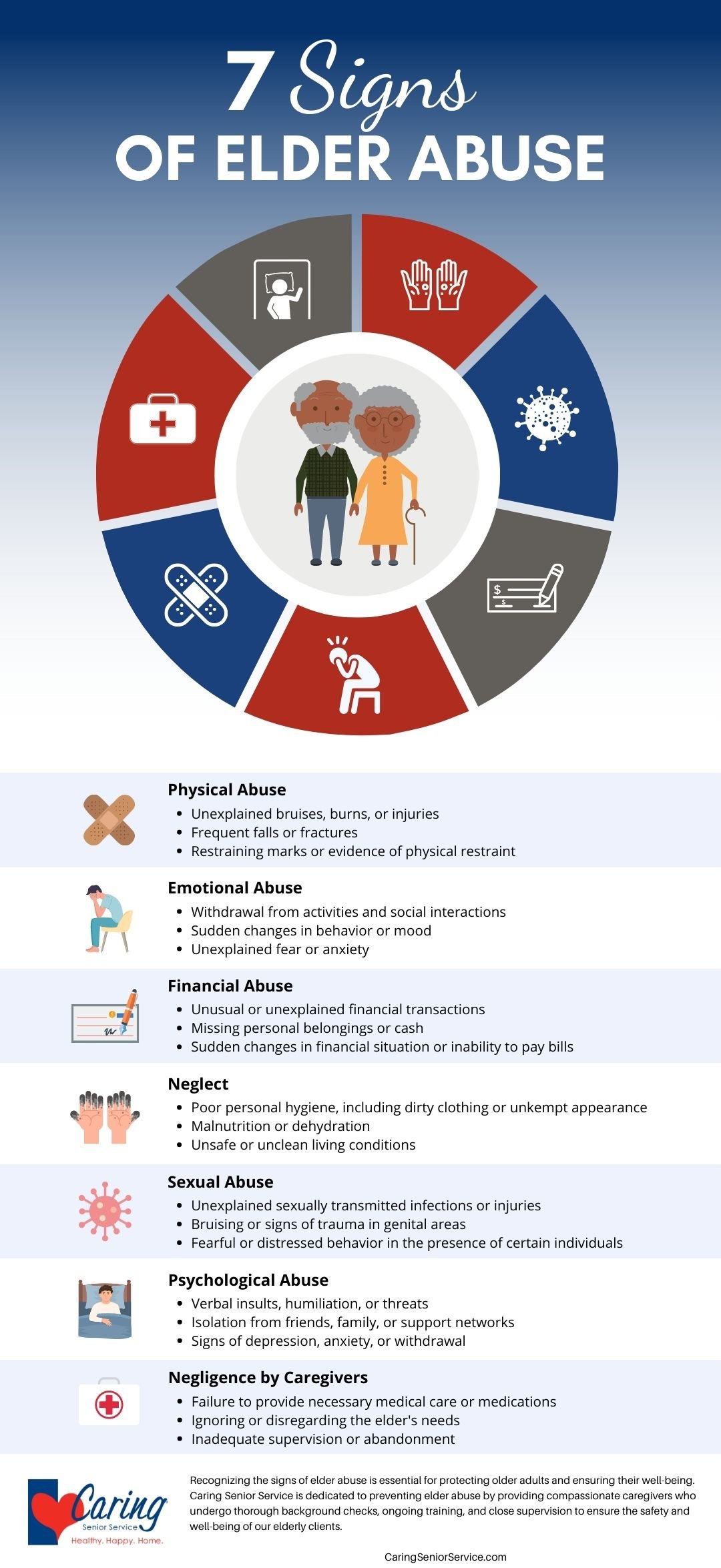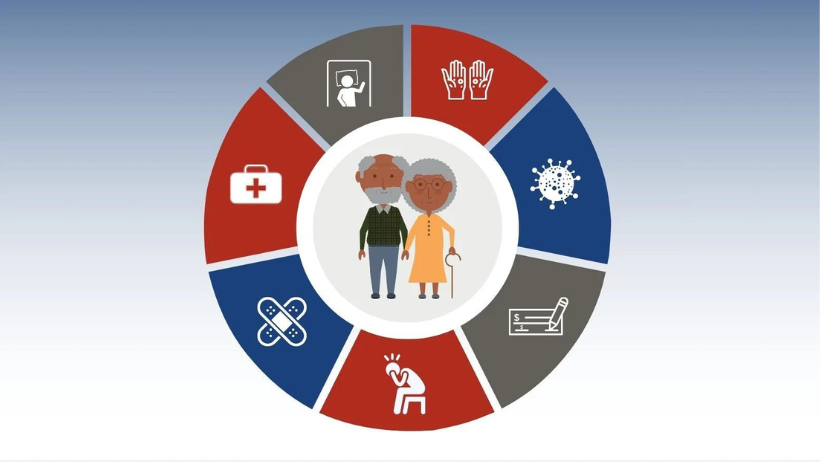As the population ages in the United States, the issue of elder abuse becomes increasingly prevalent and concerning. Elder abuse refers to the mistreatment or neglect of older adults. Unfortunately, elder abuse is often at the hand of a caregiver or family member. It can happen at home or in an institutional health care setting, like a nursing home or assisted living facility.
Elder abuse is a disturbing reality that affects countless seniors worldwide, threatening their physical, emotional, and financial well-being. Learn more about the different types of abuse along with signs. Together, let's help raise awareness and empower individuals to identify and address elder abuse.

Share this Image On Your Site
Risk Factors of Elder Abuse
While any older adult can be the victim of abuse, some are at a higher risk than others. Here are some of the risk factors of elder abuse:
- Gender: Females are more likely to suffer from elder abuse than men.
- Health: Seniors in poorer health are more likely to be victims of abuse and neglect.
- Age: Adults over 80 are more likely to suffer from elder abuse.
- Isolation: Seniors who live alone are more likely to be victims of abuse.
Types of Elder Abuse
The signs of elder abuse differ based on the type of abuse. Learn more about the different types of elder abuse.
Physical Abuse
Physical abuse is one of the most evident and visible forms of elder abuse. Here are some of the most common warning signs of physical abuse:
- Bruises
- Burns
- Broken bones
- Pressure marks or sores
- Unexplained injuries
These signs of elder abuse may be repetitive. However, these aren't the only signs to watch for. Inadequate medical care, lack of medication, or signs of overdosing on medication can also suggest physical abuse. A sudden change in the person's behavior, such as withdrawal or fearfulness, may indicate that they are experiencing physical abuse.
Emotional Abuse
Emotional abuse can be hard to detect because it often leaves no visible scars. However, its effects can be just as damaging to an older adult's well-being. The caregiver or family member may use insults, humiliation, threats, or intimidation to exert control over the elderly individual.
Signs of emotional abuse may include the following:
- Sudden changes in mood
- Unexplained depression or anxiety
- Fearfulness
- Social withdrawal
If you notice that your loved one is emotionally distressed in the presence of a specific individual, it may be a red flag for emotional abuse.
Financial Abuse
Financial abuse involves the unauthorized or improper use of an older person's funds or assets. Signs of financial abuse can include the following:
- Sudden changes in banking practices
- Unauthorized withdrawals
- Missing personal belongings
- Unusual or excessive financial activity by a caregiver or family member
- Sudden poverty
- Unpaid bills
The abuser may manipulate the older adult into signing documents, changing their will, or misusing their credit cards or bank accounts.
Neglect
Neglect occurs when caregivers fail to meet the basic needs of an older adult. These needs include providing food, water, shelter, hygiene, or necessary medical care.
The most common signs of physical neglect include the following:
- Untreated wounds
- Malnutrition
- Dehydration
- Poor hygiene
- Unexplained weight loss
- Unsanitary living conditions
- Lack of basic necessities, like heating or cooling
There are also more subtle signs of elder neglect. Social isolation and the absence of necessary assistive devices, like hearing aids or glasses, can also be signs of neglect.
Sexual Abuse
Sexual abuse of older adults is a deeply distressing form of mistreatment. Signs of sexual abuse may include the following:
- Unexplained genital or anal bleeding
- Torn or bloody undergarments
- Sexually transmitted infections
- Unexplained pain and discomfort in the genital area
- Social withdrawal
If you suspect sexual abuse, this can be a difficult discussion to have with your loved one. It is essential to approach the topic with sensitivity and provide a safe environment for your loved to share their experiences.
What To Do If You Suspect Abuse
If you suspect that an older adult may be a victim of any form of abuse, take immediate action. Start by documenting any signs or evidence of abuse that you have observed. Next, reach out to local authorities, such as adult protective services or law enforcement, to report your concerns. These agencies are trained to handle cases of elder abuse and can initiate an investigation if necessary.
If the person is in immediate danger, call emergency services without hesitation. Remember, your role is to be a voice for your vulnerable loved one. Encourage your loved one to seek support from counseling services specializing in elder abuse to aid in their healing process.
Recognizing the signs of elder abuse is crucial to protect older adults from harm and ensure their well-being. By familiarizing ourselves with the various forms of abuse, we can intervene and report suspicions, potentially saving lives and providing much-needed support to those in need. Together, we can create a safer environment for older adults and prevent further instances of elder abuse.

